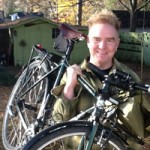“Adventure First, Education Always” is the rallying cry here at The National Center for Outdoor & Adventure Education’s (NCOAE). What you’ll find embedded in that statement is our commitment to students that they will return from our courses and trainings mentally, educationally and physically prepared for whatever brought them to us in the first place.
To that end, we offer a number of training courses that keep outdoor educators and backcountry guides up to date on the standard of care and best practices when managing medical emergencies in wilderness settings. In addition, we offer to the best of our knowledge the nation’s only 19-Day ‘Intensive’ EMT-Basic Training course.
EMT stands for Emergency Medical Technician — clinicians, trained to respond quickly to emergency situations regarding medical issues, traumatic injuries and accident scenes. Those clinicians tend to work with the EMS space, which of course stands for Emergency Medical Services.
People call EMS when they have had an accident or are experiencing a medical emergency, including heart attack, difficulty breathing, a fall or accident, drowning, cardiac arrest, stroke, drug overdose or acute illness. As a result, EMS professionals may have to provide basic and/or advanced medical care at the scene of an emergency and en route to a hospital.
Which brings us to the point of this blog post:
May 15-21 is National EMS Week and we here at NCOAE want to honor the urban medical field for its work as well as the service’s impact on all the medical areas including wilderness medicine.
We’ve included a little history and information about the EMS system for your consideration while honoring and celebrating the folks who are out there in the wilderness every day — keeping us safe and healthy:
- EMS professionals include emergency medical responders, EMTs, advanced emergency medical technicians and paramedics. More than an ambulance service, EMS is now an essential public function and a vital component in the medical care field.
- Emergency Medical Services practitioners care for their patients’ medical needs and show caring and compassion to their patients in their most difficult moments.
- Back in 1974, President Gerald Ford authorized EMS Week to celebrate these practitioners and the work they do in our nation’s communities.
- EMS was a new concept in emergency care back then, and EMS practitioners had only just started to be recognized as a critical component of emergency medicine.
A lot has changed since then, and here at NCOAE, we offer a variety of medical training courses, including:
- Standard ‘Intensive’ EMT-Basic (EMT-B)
- Hybrid Wilderness EMT (WEMT)
- Hybrid Wilderness First Responder (Hybrid WFR)
- Standard Wilderness First Aid
- Hybrid Wilderness First Aid (Hybrid WFA)
- American Heart Association CPR & First Aid
Visit the Medical Training section of our website for more information on any of these trainings, and please join us in saying “thanks” to all the EMS personnel out there (some of whom we’ve trained ourselves here at NCOAE).
– – – – – – – – –
 About the Author: Stephen Mullaney is the staff development director at The National Center for Outdoor & Adventure Education (NCOAE) in Wilmington, N.C., where he is responsible for the training and education of NCOAE’s field instructors. He is a member of the North Carolina Association of Educators (NCAE) and has taught within the Durham, N.C., public school system. Stephen received his undergraduate degree in English from Framingham State University, and an Independent, alternative Masters in Education.
About the Author: Stephen Mullaney is the staff development director at The National Center for Outdoor & Adventure Education (NCOAE) in Wilmington, N.C., where he is responsible for the training and education of NCOAE’s field instructors. He is a member of the North Carolina Association of Educators (NCAE) and has taught within the Durham, N.C., public school system. Stephen received his undergraduate degree in English from Framingham State University, and an Independent, alternative Masters in Education.
TALK TO US
Have any further questions about our courses, what you’ll learn, or what else to expect? Contact us, we’re here to help!

Leave a comment